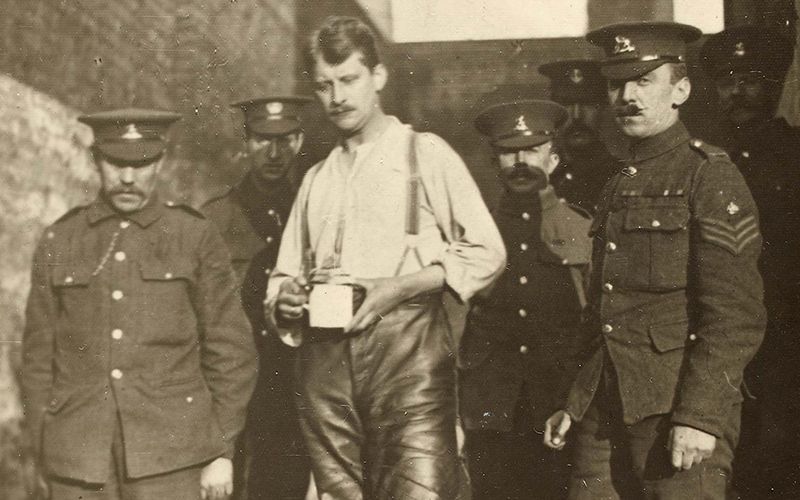| The War in Iraq |
In the fourth year of the Iraq war I was walking home one day with my partner. It was June 2007, about five in the afternoon, and the sun was shining.
We had been shopping at the farmer’s market in Union Square and we’d picked up some seasonal vegetables and a French loaf.
In a continental flourish I had picked up a bottle of white wine. It’s the little things, isn’t it?
Above us the sky was a brilliant shade of blue that opened the heart. We were in sweet tempers, and I recall, we were laughing.
Then, a block from home, we saw a figure lying in the middle of the road. We did double takes, the way you do when you can’t quite believe what you’re seeing.
Getting closer, we discovered it was a short, thin, white haired old gentleman in a short-sleeved shirt. Over him a Fire Department paramedic was taking his pulse and reaching into his kit bag for medical equipment.
As we got closer a young woman appeared from the nearby Romanian restaurant. She was carrying a chair. She signaled to an old woman, obviously the old man’s wife, to sit down.
Another ambulance arrived, a stretcher was produced. All of this happened in the minute that it took us to reach the scene.
I saw the old man’s mouth open and close like a goldfish that had leapt from its bowl. I don’t know how I knew it, but I knew he was drawing his last breaths.
They both looked like they had seen some action, this old pair. She was short and stout and wore a short-sleeved blouse and sensible grey skirt. Her feet were tiny and swollen and they had probably carried her from Eastern Europe to the New World.
It was such a simple, heartbreaking scene. An old woman sitting on a chair in the middle of the street in early summer, looking on helplessly as the man she had made most of her life with passed away.
Even in extremis you could see the strength of the bond between them. It was all there in her worried gaze and in his helplessness.
He died there too, within the space of a few minutes. And with him went all the light and peace of the day, replaced by consternation in the face of the inevitable. My partner insisted we leave immediately.
I don’t know how to talk to people who have never known this kind of loss. In truth I don’t even trust people who have never known this kind of loss.
Because what it teaches you is a deep reverence for life and love, and the awareness of how quickly the little flame of the human spirit is irrecoverably extinguished.
It teaches you the pain of that separation too, and it teaches you to nurture your connections wherever you find them.
It was a dark year, 2007, the worst year of the Iraq war. The pain of separation was the defining characteristic of that year.
By then 3,896 U.S. troops had been killed, at least 894 U.S. soldiers in that year alone. Over 1,139,602 Iraqis -- men, women and children -- had already lost their lives.
It’s easy to read those figures and keep them at arm’s length. Death is abstract when it happens far away, to someone else, but it’s a terrific reality when it unfolds a block from your house, or in your house.
Many Americans had wanted violent revenge for the atrocity of 9/11. Their desire to heal the terrible pain they had experienced, at any cost, made them and their political leaders impulsive and sometimes irrational.
It took America years to wake up from the nightmare of 9/11. It took missing weapons of mass destruction; it took the difficulty of the occupation; it took the fact that it lasted longer, years longer, while costing more in lives and treasure, than any of the belligerent neoconservative hawks had predicted in 2003.
I don’t know why, but the two events -- the old man dying on my street and the Iraq war -- are now inextricably linked in my memory.
The anguish of the former can’t compare to the horror of the latter, obviously. But a death anywhere leaves suffering in its wake, and the pain of separation is the same the world over.
People who have experienced the loss of a loved one can often feel isolated from the wider world. The truth is they have actually joined it.
That old man’s passing reminded me that what connects us is more profoundly real than what divides us.
They called it the war on terror, but really it was the war on death, and it was equally as pointless.
We should have turned to each other. We would have healed better.




Comments